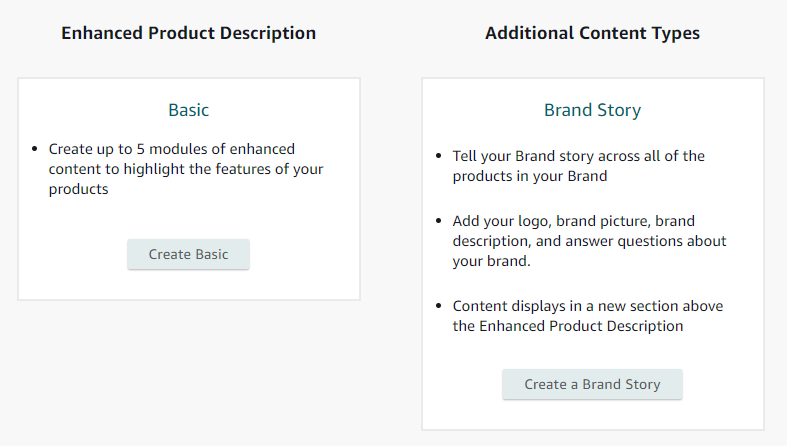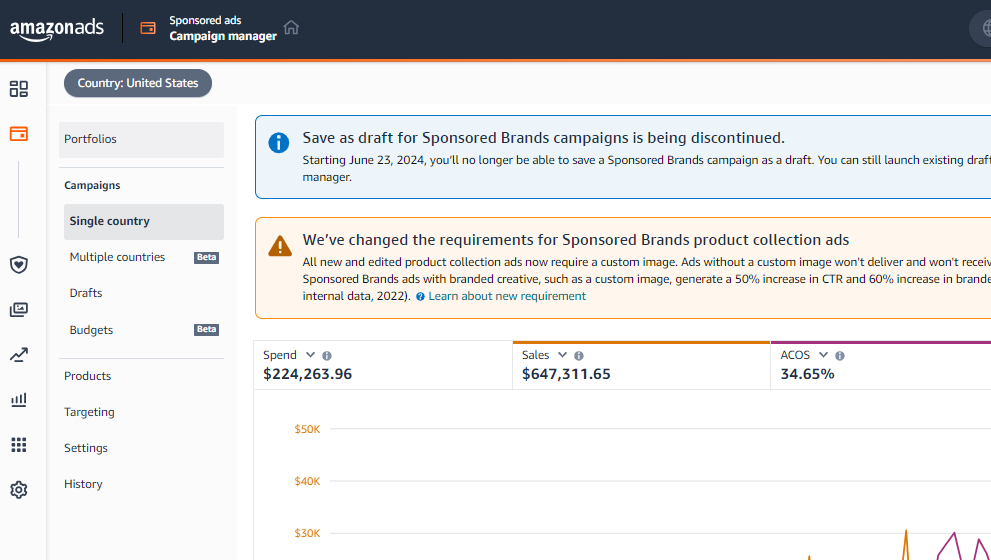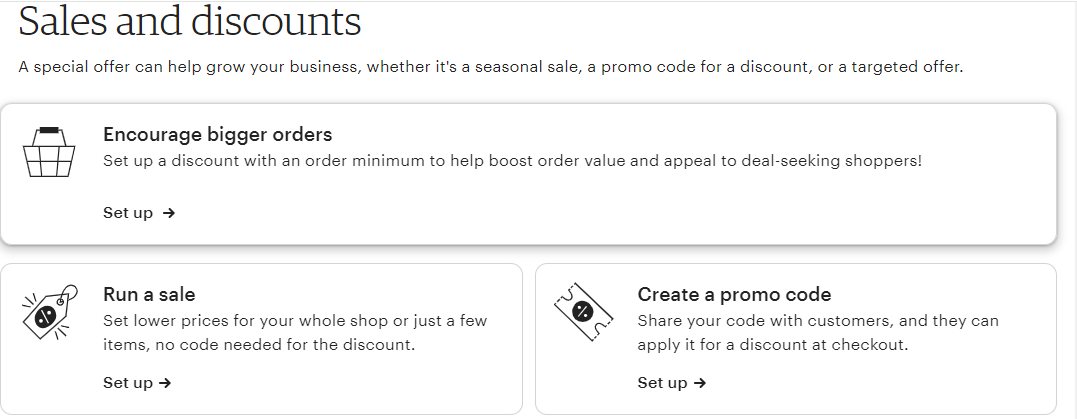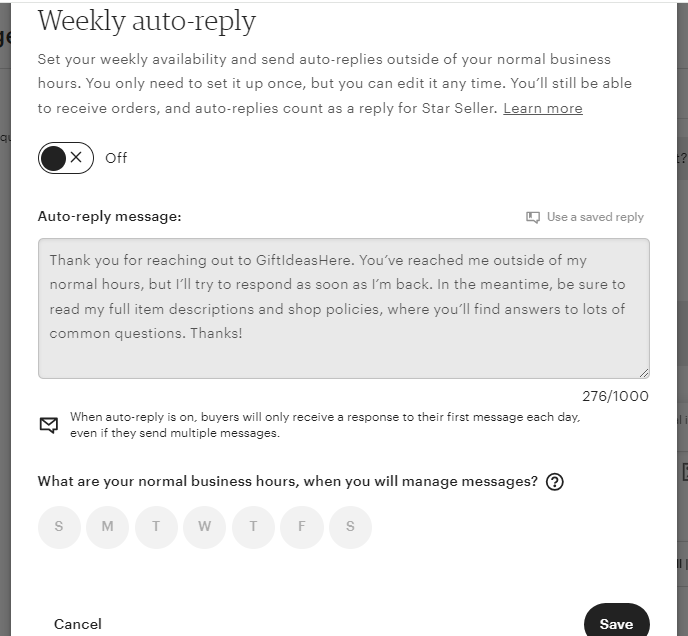Want to learn how to increase sales on Etsy and Amazon? Especially if you’re new to the Low Hanging System, if your print-on-demand products aren’t selling, you may feel discouraged.
But don’t give up!
In this post, you’ll learn 8+ actionable tips to help turn things around and make sales start rolling in. The tips detailed below aren’t necessary to be successful with LHS but they are a great way to boost your sales traction.
Let’s take a look…
1. Evaluate your designs to increase sales on Etsy and Amazon
The cornerstone of a successful POD business is your products’ designs. If sales are lagging, your designs might need a refresh. Consider the following suggestions to help you learn how to increase sales on Etsy and Amazon:
Simplify your designs
Overly complex designs can be overwhelming and may not appeal to a broad audience.
Simplifying your designs can make them more versatile and attractive. Focus on text-based designs with minimalistic elements and clear, readable fonts.
These work. Here is some proof:
There is so much more where that came from.
Stay on top of trends (in your 10-20% play time).
While this isn’t necessary, sometimes keeping an eye on current design trends and incorporating them into your products can help. This could involve trending topics in the news or pop culture, popular colors, or motifs that resonate with your target audience. Tools like Pinterest, Instagram, design blogs, and Google Trends can provide valuable insights into what’s trending.
Optimize your designs for different products
Make your designs are versatile and look good on various products, from t-shirts and hoodies to mugs and teddy bears. Some designs may need adjustments to fit different product dimensions and shapes effectively.
2. Target the right audience
Even the best designs won’t sell if they’re not reaching the right people. Ensure you’re targeting the correct audience by following these tips:
Define your niche (use the LHS master list)
Clearly identify the specific niche or market segment you want to target. This could be based on demographics, interests, lifestyles, or hobbies. The more specific you are, the easier it will be to create designs that appeal to your audience.
And if you’re in LHS, use the amazing master list.
Analyze your competition
Study your competitors to understand who their target audience is and how they are reaching them. Identify gaps in their strategy that you can capitalize on to attract your own audience.
Track and analyze data
Regularly track and analyze data related to your marketing efforts and sales. Use this data to refine your targeting strategies. That way, you can make informed decisions about how to reach your audience more effectively.
3. Optimize your product listings
A well-crafted product listing can significantly impact your sales. Here’s how to optimize your listings to help you learn how to get more sales on Etsy and Amazon.
Use high-quality images
Ensure your product images are high-resolution, well-lit, and show your products from multiple angles. Include lifestyle images to help customers visualize the product in real-life settings. Etsy and Amazon both favor listings with multiple high-quality images.
Write compelling titles
Create clear, descriptive, and keyword-rich titles. Include important details like the product type, main features, and intended use. Make sure your titles are easy to read and understand, and avoid keyword stuffing.
Use relevant keywords
Optimize tags and categories
You don’t NEED to do this, but on Etsy you can use all 13 tags available to include a variety of relevant keywords and phrases. Choose the most appropriate categories and subcategories for your products to ensure they appear in the right search results. On Amazon, select the correct product category and use all available backend search term fields.
If you need help with tags, check out Too Easy Tags.
Set competitive prices
Research the pricing of similar products on Etsy and Amazon to ensure your prices are competitive. Consider offering discounts or promotions to attract customers, but be mindful of maintaining your profit margins.
Offer fast and free shipping to increase sales on Etsy and Amazon
On Amazon, offering fast shipping options like Prime can increase your chances of making a sale. On Etsy, consider offering free shipping or setting a minimum purchase amount for free shipping. Highlight your shipping policies in your listings to set clear expectations for customers.
Use enhanced content
On Amazon, use A+ Content (for brand-registered sellers) to add more detailed information, images, and comparison charts to your product listings. On Etsy, use the “About” section to tell your brand story and connect with your customers on a personal level.
4. Enhance your marketing efforts
Effective marketing is a helpful way to learn how to increase views and sales on Etsy and Amazon. If your products aren’t selling, you may want to revamp your marketing strategy.
Run targeted ads (optional)
Invest in targeted advertising on Etsy and Amazon to help increase your sales. Use Etsy’s Promoted Listings and Amazon’s Sponsored Products to increase your visibility. Set a budget. Choose relevant keywords. And regularly monitor your ads’ performance to optimize your campaigns.
Offer promotions and discounts
Attract customers with special promotions and discounts. Consider offering limited-time sales, bundle deals, or coupon codes. Highlight these offers in your product listings and marketing materials to create a sense of urgency. Promotions and discounts can help you increase sales on Amazon and Etsy.
5. Analyze and adjust
Regularly analyze your sales data and adjust your strategy accordingly. Doing so can help increase sales on Etsy and Amazon.
Monitor key metrics
Track important metrics such as…
- sales volume
- conversion rates
- average order value
- and customer acquisition costs
Use platforms like Google Analytics, Etsy’s Shop Stats, and Amazon’s Seller Central to gather this data.
Identify trends
Look for patterns in your sales data to understand what’s working and what’s not. Identify which products are performing well, which marketing campaigns are most effective, and which customer segments are the most profitable.
Evaluate your listings
Regularly review your product listings to ensure they are optimized. Check for high-performing keywords, compelling images, and detailed descriptions. Update listings that are underperforming with new keywords, images, or descriptions based on current trends and customer feedback.
Assess marketing campaigns
Analyze the performance of your marketing efforts, including social media, email campaigns, and paid ads. Determine which channels are driving the most traffic and sales. Then, allocate your budget and resources accordingly.
Focus on high-performing products
Identify your best-selling products and consider expanding your offerings in that niche. Develop variations or complementary products to capitalize on their popularity. Additionally, consider discontinuing or improving low-performing items.
6. Expand your product range
If your current products aren’t selling, consider expanding your range to increase sales on Etsy and Amazon.
Identify gaps in your offerings
Evaluate your product line to identify any gaps. Consider adding complementary products, variations, or accessories that enhance your existing range. For example, if you sell t-shirts, you might expand to hoodies or tank tops.
Collaborate with other creators
Partner with artists, designers, or other creators to develop unique products. Collaborations can bring fresh ideas and appeal to a broader audience. Make sure to choose partners whose style and values align with your brand.
Leverage seasonal and trending themes
Introduce products that cater to seasonal events, holidays, or trending themes. Limited-edition items can create a sense of urgency and attract new customers. Plan your product launches around key dates and trends to maximize impact.
Diversify product types
Consider offering a variety of product types within your niche. For example, if you sell a lot of wall art, you could expand to include framed prints, canvas wraps, or digital downloads. Diversifying your product types can attract different customer segments.
7. Improve your customer service
Excellent customer service can set you apart from the competition and encourage repeat business.
Respond promptly
Aim to respond to customer inquiries as quickly as possible (within 24 hours). Fast, helpful responses can make a significant difference in customer satisfaction. Set up notifications for messages and consider using automated responses to acknowledge receipt and provide an estimated response time.
Be courteous and professional
Always communicate with customers in a polite and professional manner. Show empathy and understanding, especially when addressing concerns or complaints. A positive tone can help build rapport and trust.
Provide clear information
Ensure your product listings include comprehensive information about your products, including…
- dimensions
- materials
- care instructions
- and shipping details
This reduces the likelihood of customers needing to ask questions and helps manage their expectations.
Offer multiple contact options
Make it easy for customers to reach you by providing multiple contact options, such as…
- phone
- and social media
Clearly display your contact information on your store’s homepage and product listings.
Personalize your interactions
Whenever possible, personalize your communications with customers. Use their names, reference past purchases, and tailor your responses to their specific needs and concerns. Personal touches can make customers feel valued and more connected to your brand.
Provide detailed order updates
Keep customers informed about the status of their orders. Send confirmation emails, shipping notifications, and tracking information. Transparency about order status can help reduce anxiety and build trust.
Create a FAQ section
Develop a comprehensive FAQ section on your store’s website to address common questions and concerns. This can help customers find answers quickly and reduce the volume of inquiries you receive.
8. Network and learn
Finally, don’t underestimate the value of networking and continuous learning to help increase sales on Etsy and Amazon.
Join online communities (like LHS)
Participate in forums, groups, and online communities related to ecommerce, POD, and your specific niche. Platforms like Facebook, Reddit, and LinkedIn have groups where you can…
- exchange ideas
- ask for advice
- and share experiences with other sellers
Take online courses
Invest in online courses and webinars to enhance your skills. Shameless plug – we’ve got some listed here.
Follow industry leaders
Follow successful sellers, influencers, and thought leaders in your industry on social media. Pay attention to their strategies, tips, and recommendations. Engaging with their content can provide valuable insights and inspiration.
Collaborate with other sellers
Partner with other Etsy and Amazon sellers for…
- cross-promotions
- joint giveaways
- or collaborative products
Collaborations can help you reach new audiences and build mutually beneficial relationships.
Stay updated on platform changes
Regularly check for updates and changes to Etsy and Amazon’s policies, algorithms, and features. Staying informed about platform changes can help you adapt your strategies and maintain compliance, ensuring your store remains competitive.
I hope you find these tips about how to increase sales on Etsy and Amazon useful. These strategies can help you learn how to get 10 sales a day on Etsy and Amazon. If you have any other strategies you’d like to share, please leave a comment below. And if you enjoyed this post, please consider sharing it with your friends and followers.













1 thought on “8 Tips to increase sales on Etsy and Amazon if your products aren’t selling (part 1)”
This is incredibly helpful–thank you, Rachel!